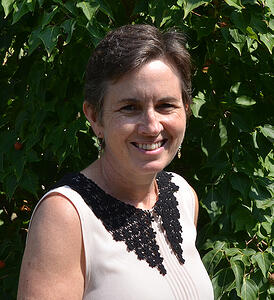No other subject seems to create as much anxiety as math. You may not like history or English, but few of us ever say “I couldn’t do English” or “I didn’t have a history mind.” As math students, we all have stories about teachers who failed us and teachers who inspired us. Mrs. Spencer and Mrs. Kelso encouraged me to stretch beyond my peers and take math with the grades ahead of me. On the other hand, Mrs. Culp didn’t see any need (or feel any responsibility) for me to succeed in Algebra II. As parents we bring our own experiences -- good and not so good -- with us when we approach our own children’s relationship with math. Our children will have their own experiences; our task is to provide the best program with the most qualified teachers possible in which they will thrive.
 When looking at a school’s math program, be sure to consider the following:
When looking at a school’s math program, be sure to consider the following:
● What texts are used? There are lots of quality, well-researched textbook programs on the market: Math in Focus (Singapore math), Connected Mathematics, Investigations in Mathematics and Everyday Mathematics are only a few of those you may encounter in your child’s school. Take a look at the underlying philosophy of the textbook series. Does it seem to fit with what you know about your child? Remember that well-researched programs are only a starting place for ensuring your child’s success.
● Are all teachers using the same program? While independent schools hire talented professionals and encourage creativity, vertically integrated math programs become much more challenging when different teachers choose and use different publisher’s texts as their core resource for their students.
● What professional development have teachers had to help them best implement the school’s math program? Even the best materials are only as good as the teacher using them. Well done professional development includes attending national and regional math conferences, participating in workshops focused on best practices in your school’s math program, and on-site training with skilled consultants and facilitators.
● What systems are in place to ensure teachers are working together across grades? The most successful programs have teachers who can teach up and down the grades. Lower School, Middle School and Upper School teachers who meet on a regular basis and attend to careful implementation of their scope and sequence help to create a seamless program. Discussion of and planning for students as they transition from division to division creates a clear path for students through a school’s program.
● What supports are in place for students? A talented math specialist will be able to support a student through a rough spot or help stretch a ready student to explore greater challenges. Math Labs, available to students during study halls and recess, provide drop-in help. The regular time and ease of finding a teacher or peer lower barriers for students wanting help. Peer tutoring programs are another great way for connecting students with support on a regular basis. I once had a student tell me that she owed her success in Algebra I to her peer tutor!
● What is the school’s attitude towards student learning? Is it a growth mindset? Carol Dweck is only one of a number of scholars whose research demonstrates the importance of beginning with a belief that through dedication and application children’s (and adults’) most basic abilities can be developed.
Children are not good or bad at math; they bring different strengths and abilities to learning math. As teachers and parents, our task is to help them persevere and learn to their fullest potential.


